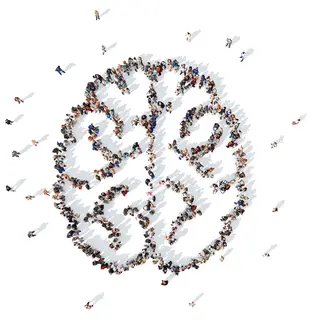Behavioral Science
MIT Sloan working paper shows how media networks could curtail spread of false COVID-19 news
Research shows “accuracy nudge” can make a significant impact
CAMBRIDGE, Mass., April 20, 2020 – The COVID-19 pandemic, like many other global challenges, depends on the actions of individuals and the quality of information available. The recent proliferation of “fake news” on social media is concerning, as it could cause people to overreact or, more dangerously, underreact. In a recent study (not yet peer reviewed), MIT Sloan School of Management Prof. David Rand found that an “accuracy nudge” from social media networks could curtail the spread of misinformation about COVID-19.
“We’re seeing misinformation on social media in many forms – from conspiracy theories about the virus being created as a biological weapon in China to claims that coconut oil kills the virus,” says Rand. “It’s important to better understand why people both believe and share false information related to COVID-19 and to develop interventions to reduce the spread of misinformation.”
The study conducted by Rand, Gordon Pennycook of the University of Regina, MIT Sloan researcher Jonathon McPhetres, and MIT Sloan PhD student Yunhao Zhang involved two experiments.
In the first experiment, approximately 850 people were divided into two groups. The first group was asked to classify 30 news headlines about the pandemic as accurate or not. The other group was given the same headlines and asked whether or not they would consider sharing the story on social media. “We expected people to say they’d share a substantial amount of false information about COVID-19, and we wanted to see if this was because people simply couldn’t tell what was true versus false,” explains Rand.
On that contrary, the study showed that participants were far more discerning if they were asked about whether a news story was accurate than if they were asked whether they would share it on social media. Further, individuals who are less likely to rely on their intuitions and who are lower in basic scientific knowledge were worse at discerning between true and false content. These observations fit with the researchers’ hypothesis that much of the time, people share misinformation because they are distracted from accuracy, rather than because they really can’t tell true from false.
If so, this would suggest an intervention: nudge people to think about whether headlines are accurate, and thus redirect their “attentional spotlight” to shine on accuracy. In the second experiment, the researchers tested this prediction by subtly inducing people to consider the concept of accuracy before deciding what headlines they’d share.
The researchers found that this minimal intervention - asking people to consider the accuracy of a single news story unrelated to COVID-19 at the outset of the study - doubled their level of discernment when deciding to share true versus false headlines about COVID-19.
“Our findings are consistent with prior studies on political misinformation. Simple and subtle reminders about the concept of accuracy may be sufficient to improve people’s sharing decisions regarding information about COVID-19, and therefore reduce the amount of misinformation seen on social media,” said Rand.
He added, “When misinformation is particularly high risk – as it is with the COVID-19 pandemic – even modest improvements can have meaningful consequences.”
Rand is a coauthor of the working paper, “Fighting COVID-19 misinformation on social media: Experimental evidence for a scalable accuracy nudge intervention.”
The MIT Sloan School of Management
The MIT Sloan School of Management is where smart, independent leaders come together to solve problems, create new organizations, and improve the world. Learn more at mitsloan.mit.edu.




